MOVIE REVIEW – Robert Eggers’ sweeping and haunting Viking epic is perhaps his best film yet. The Northman, starring Alexander Skarsgård and Anya Taylor-Joy, is a gritty Viking revenge story that tells a compelling tale of unforgiving hatred and love at the same time. The film is also interesting because it draws its story from the saga that inspired William Shakespeare’s Hamlet.
Robert Eggers likes to explore the precariousness of horrific situations, whether through religion and doubt in 2015’s The Witch or by questioning our own sanity in 2019’s The Lighthouse. Eggers has told both stories on a relatively small scale, mostly confined to a secluded house on the edge of the woods or a claustrophobic lighthouse so small that even the protagonist pokes his head into the film’s frame. These limitations helped Eggers become a truly unique and effective filmmaker, portraying the psyche of his characters through their nightmares. But while witches and mermaids – and the fear that the world no longer makes sense – plague the characters in Eggers’ films, it is this uncertainty that creeps in and plagues the minds of the characters that makes Eggers’ first two films stay with us long after we have seen them.
At once psychological horror, a Viking story and a true Eggers film
Eggers’ third film, The Northman, however, gives the director much more room for exploration (in both the figurative and concrete sense of the word): a vision of vastness and scale that Eggers has never attempted before, but that haunting uncertainty remains and is as effective as ever. Co-written by Eggers and Sjón, it revisits the saga of Amleth of The Northman (which inspired Shakespeare’s Hamlet). It follows the vengeful journey of the title character, a Viking warrior prince (Alexander Skarsgård). As a child, Amleth witnessed his father, King Aurvandill (Ethan Hawke), murdered by his uncle Fjölnir (Claes Bang). After witnessing his father’s murder, Amleth vows to avenge his father, rescue his mother, Queen Gudrún (Nicole Kidman), kidnapped by Fjölnir’s men, and kill Fjölnir.
The Northman, at first glance, is distinctly similar to Eggers’ earlier works in its strangeness, whether it is characters such as Heimir the Fool, played by Willem Dafoe, or the unsettling nature of the times, when the existence of the royal family or the lives of its members are constantly under grave threat, as murderous and bloody violence is part of everyday life. As The Northman progresses, however, Eggers’ penchant for uncertainty again infiltrates the story, as Amleth’s desire for revenge becomes saturated with scepticism. Eggers’ most essential and exciting theme to date emerges in this uncertainty, as Eggers and Sjón explore how evil begets evil and how even the most black-and-white sagas and scenarios are full of grey transitions. One of the peculiarities of The Northman is that love, compassion and the acceptance of forgiveness are as crucial in the film as the grim desire for revenge and bloodlust.
The vengeance and murderous fury of a Viking
Like all Eggers’ work, The Northman has an inherently haunting quality. When we first see the adult Amleth, he is such a feral Viking warrior that he can be considered more animal than human. As Amleth and his troops kill and pillage a small village, Skarsgård fights and kills almost like a wild animal, with hunched shoulders and a determination to kill everything in his path. Even if Amleth tries to ignore his royal origins at this early point, we can clearly see the deep-rooted rage that has lived in this man for decades. Eggers shoots this invasion almost as if it were a combination of a horror film and Elem Klimov’s terrifying anti-war film Come and See. The director shows us our protagonist as an adult and then immediately reveals that his actions since we last saw him have been as bad – if not worse – than those of his murderous uncle.
The Northman, based on the Norse legend of Amleth, which, as I mentioned, inspired William Shakespeare’s Hamlet, does not exactly reinvent the story of the Vikings but takes familiar elements and makes them shockingly new through Eggers’ camera. As Amleth progresses towards his goal, Eggers, together with cinematographer Jarin Blaschke – who shot Eggers’ earlier films – intensifies the horror. The rage takes over Amleth, and we see it in the bloody trail he leaves behind him. Eggers and Sjón’s screenplay is still not overly ground-breaking or original from a narrative point of view. Yet, the determination they have shown in the era and the terror and panic that such a situation can cause make The Northman one of the most powerful Viking stories of recent times.
They calm each other’s unbridled rage
The other key element that makes Eggers’ films so outstanding is his unrivalled performances amidst the horrors, and this is undoubtedly true of The Northman. Skarsgård is remarkable as Amleth, showing the audience exactly what this character is thinking with nothing more than his sheer physicality. It’s almost as if Skarsgård is playing Amleth as a werewolf who transforms when his bloodlust becomes too overwhelming. Amleth’s rage is counterbalanced by Olga (Anya Taylor-Joy), a sorceress who helps Amleth achieve his goal. As Olga explains early on in the film, while Amleth can break people’s bodies, she can ruin people’s minds, and like Amleth, we see through Olga’s appearance when her rage overcomes her. Skarsgård and Taylor-Joy are amazing together, and it goes far beyond how well their chemistry works anyway. The key to the two characters’ performances is that they need each other to not give in entirely to the rage raging inside them.
Beyond this pairing, The Northman is full of phenomenal performances, much of which we also see from Amleth’s heavily biased point of view. In particular, Nicole Kidman and Claes Bang are brilliant in roles that almost require a second viewing to appreciate fully. Kidman’s meeting with her son is one of the best scenes in The Northman. Bang, as Fjölnir, gives a quiet, understated performance that shows a man trying to make the best of what he has left. Meanwhile, Kidman is also restrained in her portrayal of Queen Gudrun, but at the same time she is also seething with repressed anger and the hidden demons and darker qualities of her character, which we come to understand later.
The depiction of madness was a little lacking this time
Still, if there’s one thing missing from The Northman compared to Eggers’ other works, the lack of depiction of madness made parts of The Witch and The Lighthouse feel almost cathartic. In the case of The Witch, this was achieved with the eerie ending, while The Lighthouse built practically the entire film on this motif. However, this part of Eggers’ story and psychological portrayal is primarily absent here and only occasionally appears in The Northman’s most brilliant moments. While not a fatal absence, I feel that The Northman could have integrated this madness a little more into this story.
Eggers is also a master of epics
It is clear that Eggers is one of the most innovative directors of our time. His style and stunning imagery work beautifully in a story of this scale and grandeur, and Eggers can make a film on an even larger scale that is appropriately haunting. While this is Eggers’ least horror-centric story, he employs various cinematic techniques that give the viewer a great sense of the often oppressive and frightening atmosphere that this era must have evoked in people of the time. Few filmmakers can leap from small, isolated stories to large-scale epics, but Eggers proved with The Northman that his own individual style and unique stories are not lost on such films.
-BadSector-
The Northman
Direction - 9.4
Actors - 9.2
Story - 8.6
Visuals/Music/Sounds - 9.4
Ambience - 9.2
9.2
AWESOME
It is clear that Eggers is one of the most innovative directors of our time. His style and stunning imagery work beautifully in a story of this scale and grandeur, and Eggers can make a film on an even larger scale that is appropriately haunting. While this is Eggers' least horror-centric story, he employs various cinematic techniques that give the viewer a great sense of the often oppressive and frightening atmosphere that this era must have evoked in people of the time. Few filmmakers can leap from small, isolated stories to large-scale epics, but Eggers proved with The Northman that his own individual style and unique stories are not lost on such films.

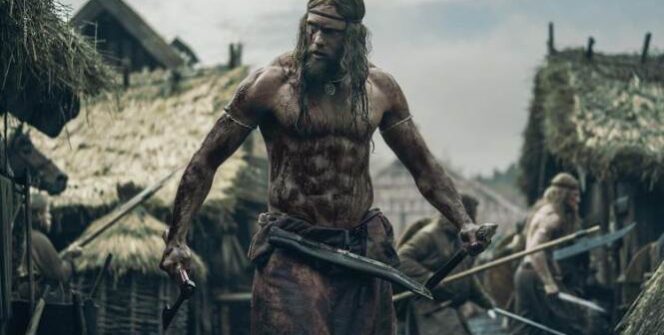
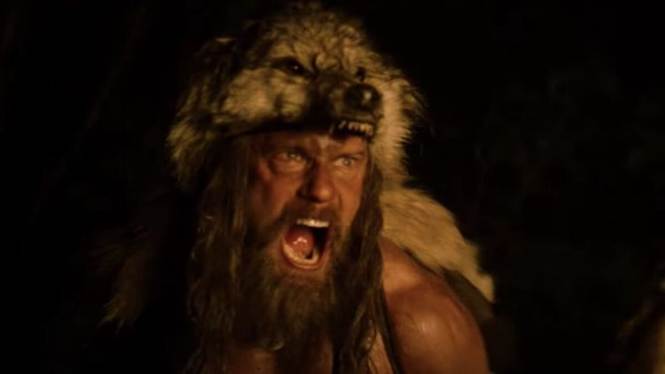
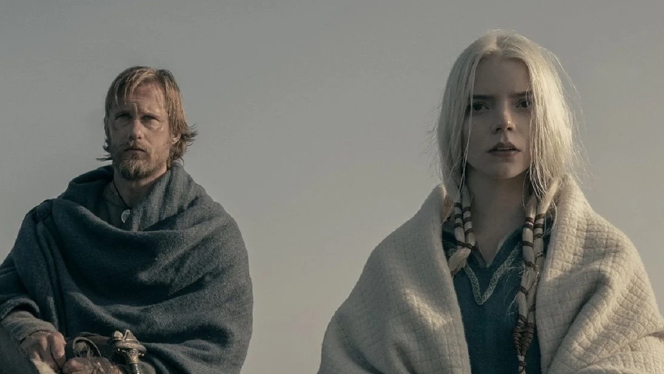
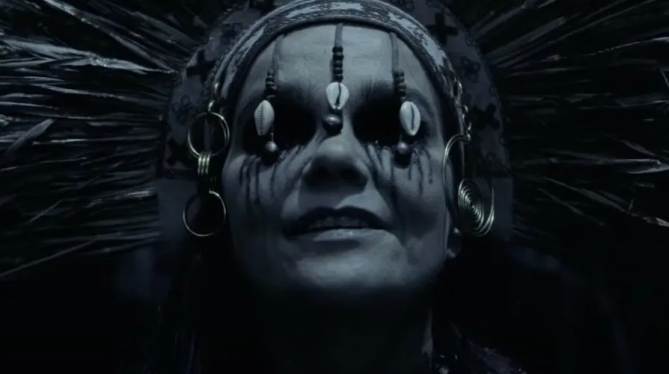
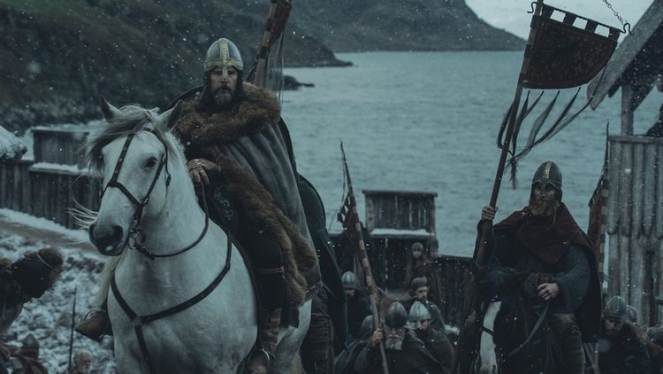











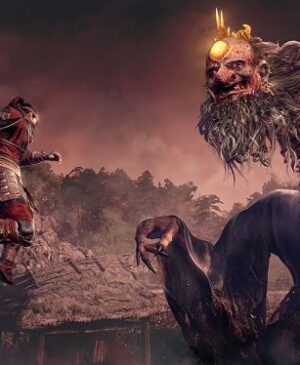
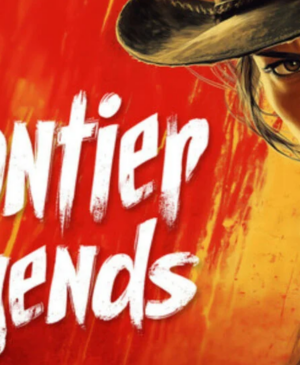
![[TGA 2025] Star Wars: Galactic Racer Focuses on High-Stakes Podrace Runs [VIDEO]](https://thegeek.games/wp-content/uploads/2025/12/theGeek-Star-Wars-Galactic-Racer-300x365.jpg)
Leave a Reply